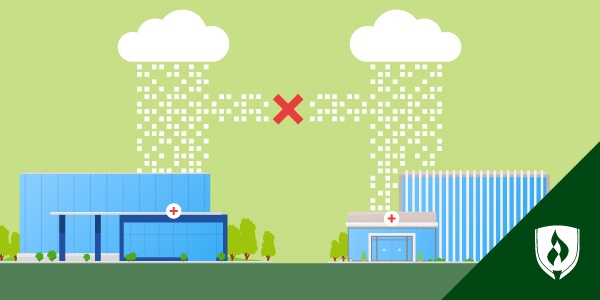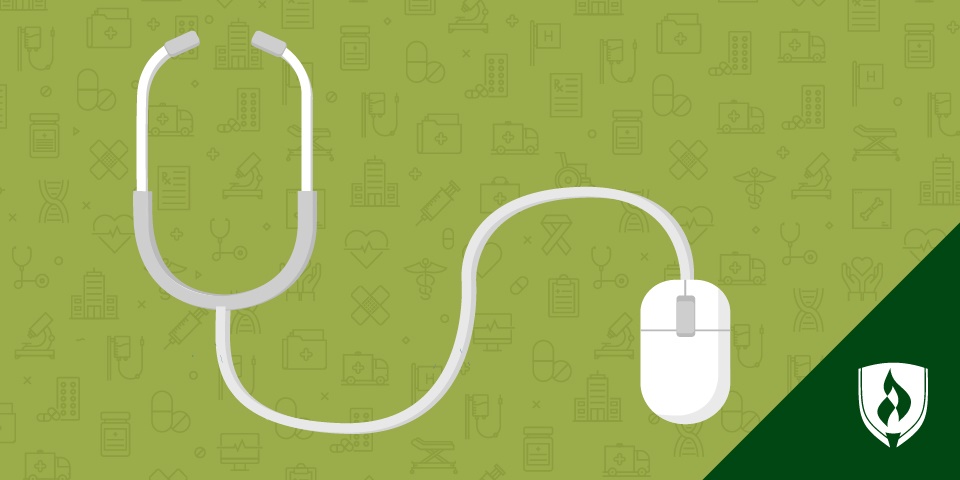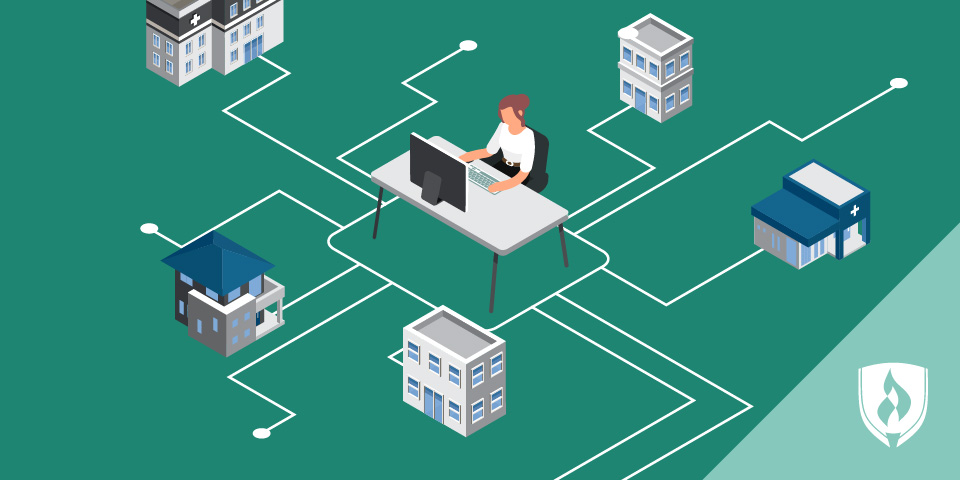Healthcare Administration vs. Health Information Technology: Clearing the Confusion
By Katy Katz on 12/05/2013
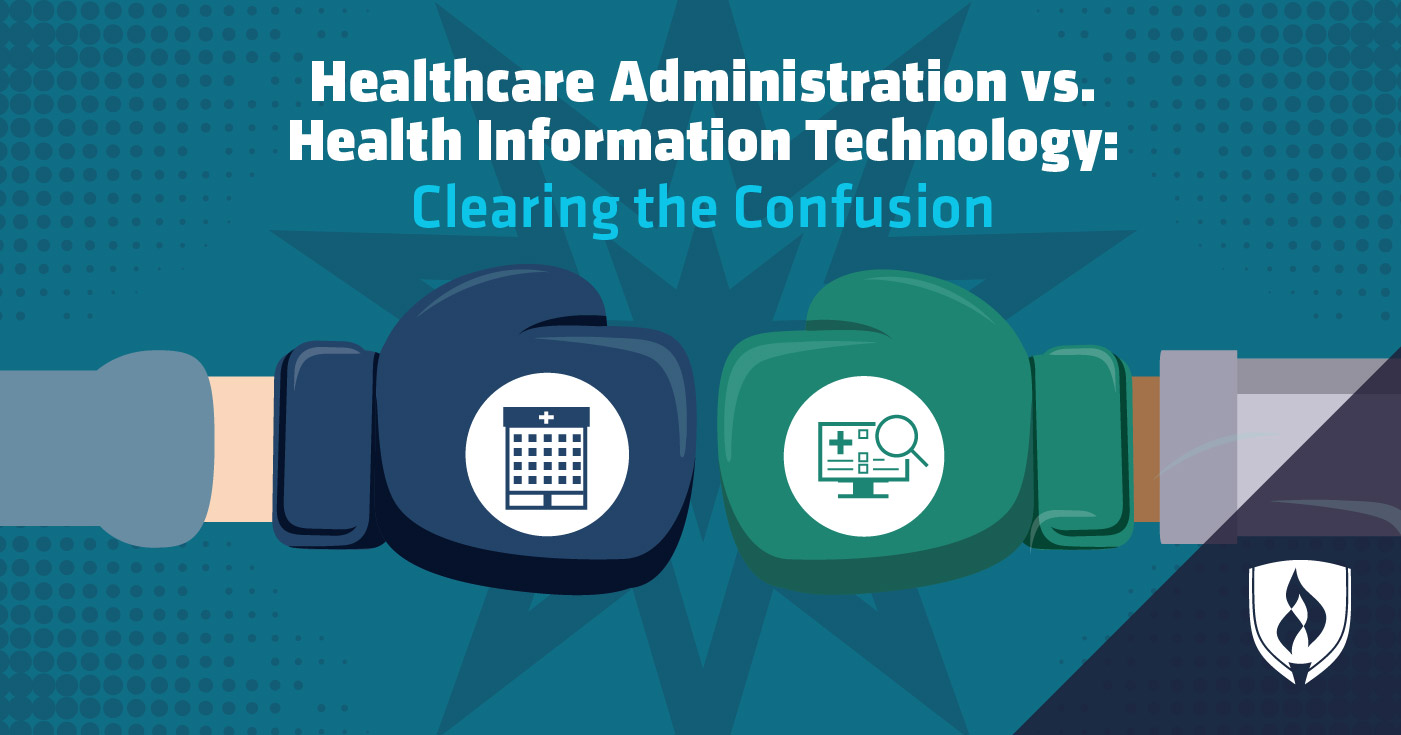
So you’ve started researching career opportunities in the booming healthcare industry. Maybe blood makes you a little squeamish but you’re drawn to the opportunity to help others that medicine offers. Don’t worry, you’re not alone. The administrative side of the business likely has great appeal to you to be a part of healthcare without all of the gory details of clinical work.
When you start looking at administrative healthcare options there is a point of confusion that a lot of people come to: identifying the differences between medical administration versus health information technology (HIT).
So, we’re here to provide a definitive answer to your questions.
Both careers focus on the administrative side of the medical field, but each is unique and intriguing in its own way. From description of duties to skills preferred to certifications required, these fields actually do differ significantly.
Here’s what you need to know before you decide.
Healthcare administration vs. health information technology: Education & certification
The first step to your new healthcare career is obtaining the appropriate education. Many medical jobs have unique certifications tied to each position. These certifications typically have educational requirements that applicants must fulfill in order to qualify to take the credentialing exam. Here are the basics:
Health admin: The majority of medical secretaries (60 percent) are required to have some college prior to employment, according to O*NET. With program options starting at the diploma level, you can finish your degree in as little as 12 months. There is no nationally recognized credential for medical administration so a diploma or a degree can be extra helpful to stand out from your competition when applying for jobs.
Health info tech: On the flip side, health information technician (HIT) jobs do not typically list an education prerequisite. But the registered health information technician (RHIT) certification does have a minimum requirement of an associate degree from an accredited program. Certification can be an important point of differentiation during a career search.
Healthcare administration vs. health information technology: Job duties
When trying to decide between two career paths, it’s important to consider how your time will be spent on the job. The duties for healthcare administration and HIT vary significantly.
Health admin: Medical secretaries (the recognized title for this career grouping by O*Net) perform administrative duties such as scheduling appointments, updating patient files and records, routing communications and maintaining the office. Day-to-day they utilize an understanding of medical terminology to help them navigate the files they are working with.
Health info tech: HIT professionals, conversely, use medical codes to create and report patient information according to a numerical ICD coding system, which helps assign numbers to every hospital incidence according to established guidelines. The industry is undergoing a switch from version ICD-9 to ICD-10 which will be effective in 2014 - all the more reason for up-to-date training on the new coding environment.
Healthcare administration vs. health information technology: Skills1
| Health admin | Health info tech |
|---|---|
|
|
Healthcare administration vs. health information technology: Location1
Hospitals remain the leading location for both healthcare administration and health information technology. Ambulatory centers, educational services and insurance carriers are also top places that you may not have considered for career placement.
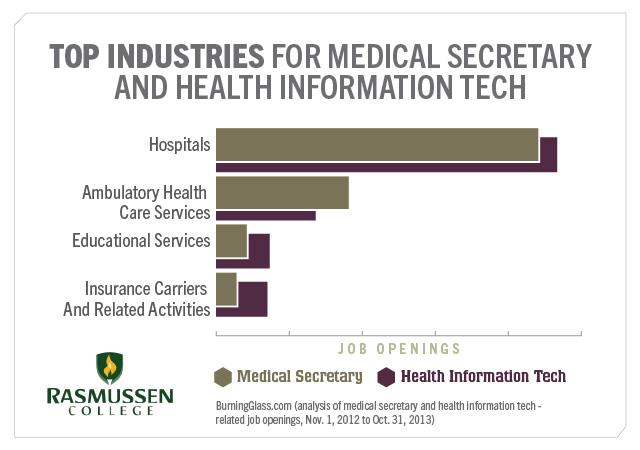
Healthcare administration vs. health information technology: Job titles1
| Health admin | Health info tech |
|---|---|
|
|
Healthcare administration vs. health information technology: Career outlook
Both of these fields are projected to grow faster than average at a time when many industries are still sluggishly recovering from the Great Recession. While you were likely drawn to healthcare for the opportunity to make a difference in people’s lives, at the end of the day you have to pay the bills, so it is very promising to see occupations with bourgeoning opportunities.
Health admin: Job growth is expected to be greater than 29 percent through 2020, which is significantly above the average of 14.3 percent.2 This is largely due to the rapid growth of the healthcare industry, according to the Bureau of Labor Statistics.
Health info tech: HIT jobs are also expected to have above average growth in the realm of 20 to 28 percent.2 A large part of this growth is attributed to the aging baby boomer population. Geriatric care often requires additional medical tests, leading to more claims and electronic records.
Healthcare administration vs. health information technology: How to decide
You are now armed with the data to help make the ultimate decision of healthcare administration versus health information technology. Both careers offer robust growth in administrative medical fields but, once they’re broken down, are very different options.
If you’re ready to take the next step, the School of Health Sciences has all of the information you need to learn more about pursuing a degree or diploma.
If you’re still feeling a bit unsure, download our Healthcare Career Guide for more information on the fastest growing fields in healthcare.
1Source: BurningGlass.com (analysis of “medical secretary” and “health information technology”-related job openings, Nov. 1, 2012 to Oct. 31, 2013)
2Bureau of Labor Statistics, U.S. Department of Labor, Occupational Outlook Handbook, [information accessed October 2013] www.bls.gov/ooh/. Employment conditions in your area may vary.

